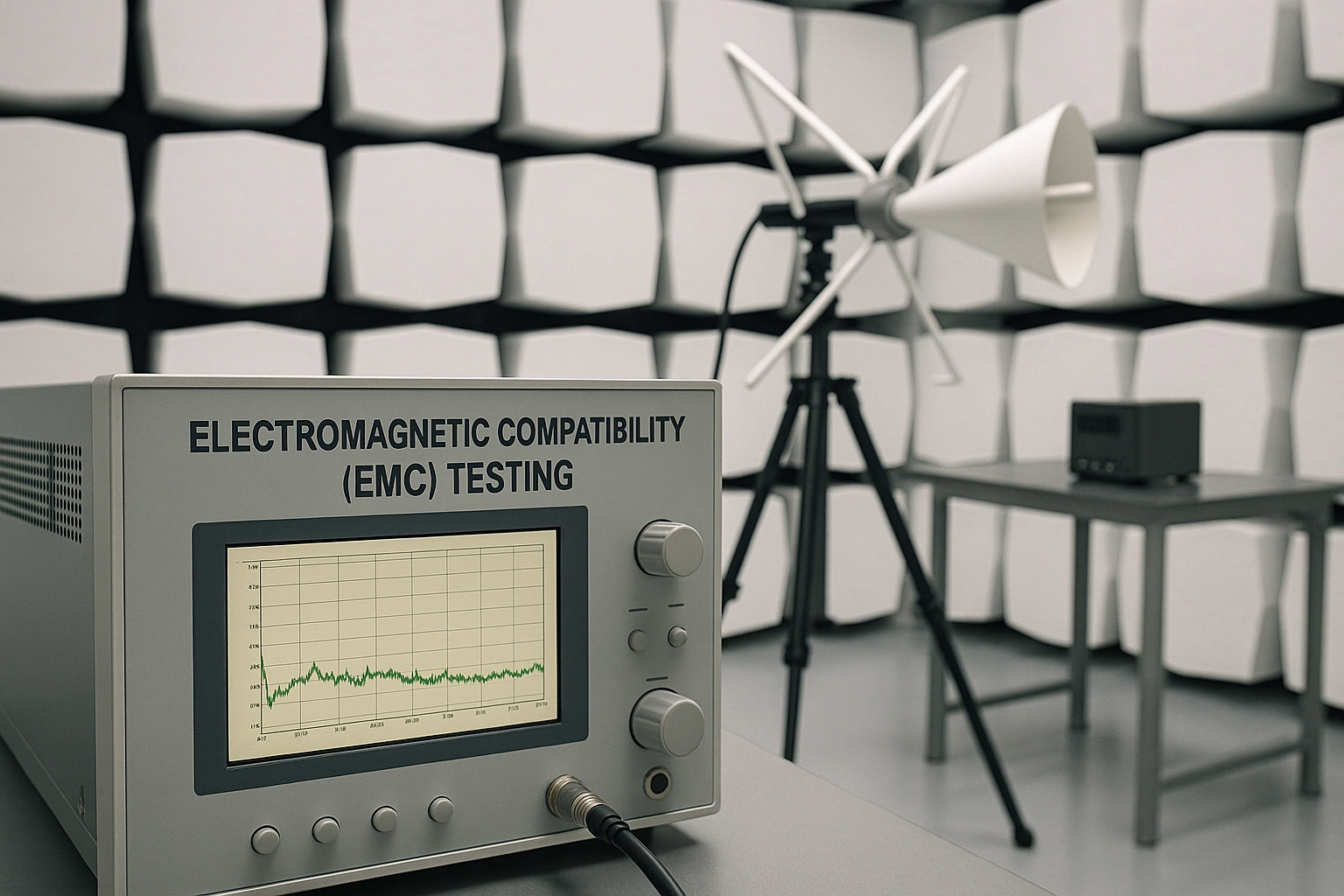CISPR 42 EMC Testing for On Board Automotive Electronics
The CISPR 42 standard is a critical regulatory requirement that ensures the electromagnetic compatibility (EMC) of on-board automotive electronics. This standard sets limits to ensure that electronic devices do not interfere with each other and can function correctly in the presence of interference signals, such as those generated by other devices or external sources like power lines and radio transmitters. Compliance with CISPR 42 is essential for manufacturers looking to meet global automotive EMC standards and avoid costly rejections during certification processes.
On-board automotive electronics encompass a wide range of components that are integral to modern vehicles, including navigation systems, infotainment devices, sensors, actuators, and more. Ensuring these devices meet CISPR 42 requirements is crucial for preventing interference with other on-board systems, which could lead to safety issues or operational failures.
The testing process under CISPR 42 involves subjecting the device to various electromagnetic interference (EMI) sources and measuring its performance in terms of emissions and susceptibility. The standard defines specific limits for both conducted and radiated emissions over a wide frequency range, typically from 10 kHz to 30 MHz.
During testing, it is essential to follow strict procedures to ensure accurate results. This includes preparing the specimen by connecting all relevant components as they would be in the vehicle and ensuring that the test setup replicates real-world conditions as closely as possible. The testing apparatus used typically consists of an anechoic chamber, spectrum analyzer, power supply, and various other measurement instruments.
Compliance with CISPR 42 is mandatory for automotive manufacturers to obtain certification from regulatory bodies like ECE R10, which governs the EMC requirements for road vehicles. Failure to meet these standards can result in product recalls, additional testing costs, and potential market entry delays. Therefore, it is crucial for manufacturers to invest in comprehensive EMC testing early in their development process.
To achieve compliance with CISPR 42, manufacturers must ensure that all on-board electronics are designed with EMC considerations in mind. This includes using proper shielding, filtering techniques, and ensuring adequate power supply designs. Additionally, thorough design reviews and simulations can help identify potential issues before physical prototypes are built.
Scope and Methodology
| Parameter | Description |
|---|---|
| Test Frequency Range | 10 kHz to 30 MHz |
| Measurement Techniques | Spectrum Analysis, Radiated Emissions Measurement |
| Specimen Preparation | Connect all relevant components as they would be in the vehicle. |
| Test Setup | Anechoic Chamber, Spectrum Analyzer, Power Supply |
| Acceptance Criteria | Emissions and Susceptibility Limits Defined by CISPR 42 |
The scope of CISPR 42 EMC testing for on-board automotive electronics is comprehensive, covering both conducted and radiated emissions. The methodology involves setting up the test environment in an anechoic chamber, connecting the specimen to a power supply, and exposing it to various EMI sources. The apparatus used includes spectrum analyzers to measure emissions over the specified frequency range.
The acceptance criteria for CISPR 42 are stringent, as they are designed to ensure that on-board automotive electronics can function correctly in the presence of interference signals. These limits are based on international standards and are continuously updated to reflect new technologies and industry practices.
Eurolab Advantages
At Eurolab, we offer comprehensive CISPR 42 EMC testing services tailored specifically for the automotive sector. Our experienced team of engineers and technicians ensures that all tests are conducted according to the latest international standards, providing accurate and reliable results.
- Expertise in Automotive EMC Testing: We have a deep understanding of the unique challenges faced by automotive manufacturers when it comes to ensuring EMC compliance.
- State-of-the-Art Facilities: Our laboratories are equipped with advanced testing equipment, including anechoic chambers and spectrum analyzers, capable of simulating real-world conditions.
- Comprehensive Reporting: We provide detailed reports that not only meet regulatory requirements but also offer insights into potential areas for improvement.
- Efficient Turnaround Times: Our streamlined processes ensure that you receive your test results in a timely manner, minimizing downtime and delays.
- Cost-Effective Solutions: We work closely with our clients to develop cost-effective testing strategies that meet their specific needs without compromising on quality.
By choosing Eurolab for your CISPR 42 EMC testing needs, you can be confident in the accuracy and reliability of your test results. Our commitment to excellence ensures that your products are ready for market entry with minimal risk of non-compliance issues.





